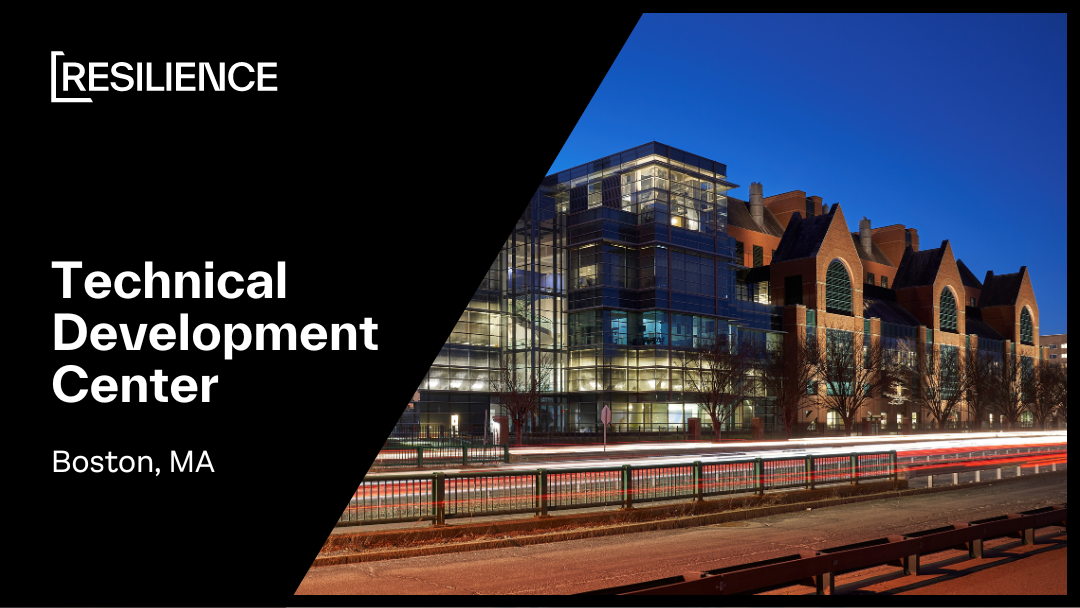
Looking Ahead: What Does the Future Have in Store for Nucleic Acid-Based Therapies?
A Q&A with Aaron Larsen
Aaron Larsen is the Technical Head for the Nucleic Acids Franchise with Resilience. He began working with nucleic acids back in 2012 in Jack Szostak’s lab at Harvard University where he evolved oligonucleotides to better understand the origins of life. Following his post-doctoral studies, Aaron joined Moderna in 2015 to work on all aspects of mRNA science, production, purification, analytics, formulation, and delivery, and subsequently led the mRNA Production/Science group at Beam Therapeutics.
Nucleic acid-based medicines have been in the spotlight as of late thanks to the successful commercialization of the two SARS-CoV-2 (COVID-19) mRNA vaccines. While these major breakthroughs have ignited renewed interest in nucleic acid medicines, the road to wide adoption will present many challenges. We recently sat down with Aaron to hear his thoughts about the future of these vaccines and therapeutics.
Aaron, you’ve been able to witness the progression of nucleic acid-based therapies from a groundbreaking idea to the first mRNA vaccine receiving FDA approval in 2021, what are your thoughts on the industry as we progress through 2023?
Before we begin to look ahead, I think it’s important to recognize the decades of work that brought us to where we are today. When researchers understood that a tiny chemical modification on one nucleobase could ‘cloak’ an mRNA molecule from the immune system without interfering with the translational machinery, this led to massive breakthroughs. Once they discovered that they could use artificial mRNA to make virtually any protein inside the cells of living animals without triggering the immune system, they unlocked the potential to cure diseases that have eluded medicine for thousands of years.
The COVID-19 vaccines not only validated mRNA as a vaccine, but they also validated mRNA’s therapeutic potential in general. The FDA now knows that mRNA is highly effective and regulatory and CMC frameworks are now in place. mRNA is now in the clinic for every kind of use case imaginable: Enzyme replacement, life-long protein knockdown, ex vivo cell therapies, in vivo gene editing, and even cancer vaccines that are personalized down to the individual human.
Maneuvering lead times
Before we can see more clinical success, I’m anticipating that we will unfortunately see longer lead times. Many manufacturing partners lack the expertise to know which assays to use for certain applications, which can delay therapeutic developers’ timelines. Thankfully, Resilience has compiled a team of industry experts who’ve contributed to taking products through clinical trial phases all the way to commercialization. I believe our team’s knowledge of what regulatory bodies are looking for can give our potential partners a leg up to overcome lead time issues.
In addition, there are a limited number of plasmid suppliers with sufficient expertise and capacity, and we’re experiencing a surge in global demand for plasmids. This is creating significant timeline delays. Plasmids are an essential tool for genetic engineering, so how to solve for this supply chain issue? Currently, Resilience has supply agreements with experienced suppliers and we aim to have in-house plasmid production capabilities. The supply agreements in place help to ensure that our customers have access to these critical materials within a reasonable timeframe, at scale required and with adequate quality frameworks in place.
Navigating the Complexities of Intellectual Property
Another interesting challenge we’re going to see more of in 2023 and beyond is related to navigating situations with intellectual property (IP). It’s critical for developers to consider working with a manufacturing partner who understands the IP landscape and who has the resources available to support them through decision-making. This is what I believe makes Resilience unique; we have scientists who are not only experts within their respective domains, but who have deep understanding of the IP landscape and how best to navigate it. They also understand the current regulatory landscape, how to meet and exceed current guidelines, and how to prepare for the shifts that we expect in the near future.
Aaron leads the Nucleic Acids Technical Team at Resilience where they are uniting innovative process and analytical development with molecular design and discovery to streamline the development of next-gen nucleic acid-based therapies. Discover where our goals intersect and let’s realize them together.




